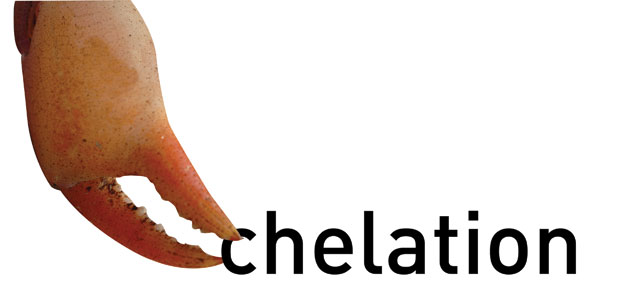Advertisement
Clean Up with Chelation
EDTA chelation can be administered by intravenous infusions, oral supplements, and rectal suppositories. Richard, hospitalized with severe chest pain, was told that if he didn’t have bypass surgery he would die. He left the hospital against medical advice. Six years later, he remains pain-free on no medications. Fifteen years ago, Jerome, who was plagued by … Continued

EDTA chelation can be administered by intravenous infusions, oral supplements, and rectal suppositories.
Richard, hospitalized with severe chest pain, was told that if he didn’t have bypass surgery he would die. He left the hospital against medical advice. Six years later, he remains pain-free on no medications.
Fifteen years ago, Jerome, who was plagued by a nonhealing diabetic ulcer, checked himself out of the hospital hours before a leg amputation. Today, he is walking around on his own two feet.
What Robert and Jerome have in common is their trip to my clinic to undergo a course of chelation treatments.
What is Chelation?
EDTA chelation is an approved therapy for lead poisoning; however, it’s most popular–and controversial–use is for the treatment of cardiovascular disease. Chelation comes from the Greek word chele, meaning claw of a crab or lobster. This is an apt term, as EDTA and other chelating agents grab onto heavy metals and remove them from the body.
In the 1950s physicians noticed unexpected improvements in angina and atherosclerotic leg pain in their patients undergoing chelation. This discovery led to great enthusiasm for EDTA chelation as a treatment for cardiovascular disease. Yet despite excellent clinical outcomes, cardiologists abandoned it in favour of drugs and surgical procedures.
EDTA chelation never went away, and it remains to this day an effective alternative treatment for a wide range of conditions.
The Heavy Burden of Heavy Metals
There is some dispute as to why chelation is so broadly beneficial. EDTA is an exceptionally potent antioxidant that reduces free-radical damage to the blood vessels. It also removes calcium from arterial plaque, reducing blockages and increasing circulation. But its most potent mechanism may be its ability to lower the body’s heavy metal burden.
New findings suggest that lead is toxic at much lower levels than previously believed. Even minute amounts have been linked with neurological deficits, elevated blood pressure, atherosclerosis, kidney disease, and increased risk of death–and lead is only the tip of the iceberg. Overload of iron, cadmium, and other heavy metals compound the problem. (Mercury is another toxin, but it requires different chelating agents.)
Get the Lead Out
This brings us back full circle to the most effective method of removing these toxins from the body. EDTA chelation can be administered by intravenous (IV) infusions, oral supplements, and rectal suppositories.
Of the three, IV chelation yields the most dramatic results. IV chelation is administered by slow infusion in a physician’s office. It is safe and well tolerated, although patients with kidney disease should be monitored carefully.
If IV EDTA is not available to you, or to maintain benefits after an IV course, look into rectal or oral chelation. Rectal absorption of EDTA is quite good, and suppositories are less expensive (about a third the cost of IV chelation). Although it is available over the counter, I would recommend that, because it is so well absorbed, EDTA suppositories be used under the care of a physician.
Much less expensive is oral EDTA, which is often combined with garlic, IP-6, and/or other oral chelators. Concerns have been raised that oral EDTA robs the body of essential minerals, but the research does not bear this out. It is generally safe and well tolerated. About 5 percent of EDTA taken orally is absorbed, so its effects are relatively weak.
Anything you can do to rid your body of toxic metals is a step in the right direction. Robert and Jerome–just two of the many patients who have experienced dramatic results following chelation treatment at my clinic–would heartily agree.




